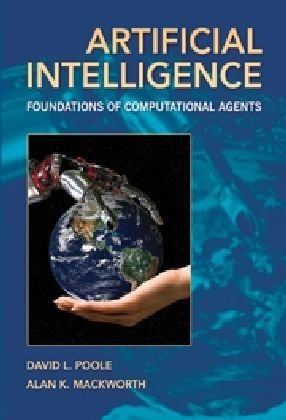
Artificial Intelligence: Foundations of Computational Agents
by David Poole, Alan Mackworth
Publisher: Cambridge University Press 2010
ISBN/ASIN: 0521519004
ISBN-13: 9780521519007
Description:
A book about the science of artificial intelligence (AI). It presents artificial intelligence as the study of the design of intelligent computational agents. The book is structured as a textbook, but it is accessible to a wide audience of professionals and researchers.
Download or read it online for free here:
Read online
(online html)
Similar books
 Ambient Intelligence
Ambient Intelligenceby Felix Jesus Villanueva Molina - InTech
In this book we analyze a selection of open problems which we consider the key ones in order to let ambient intelligence become a reality. This book provides the reader with a good idea about the current research lines in ambient intelligence.
(14642 views)
 The World and Mind of Computation and Complexity
The World and Mind of Computation and Complexityby Gregg Schaffter
With the increase in development of technology, there is research of human-like artificial intelligence that can be self-aware and act just like humans. This book explores how we may be close to developing a true artificially intelligent being.
(9954 views)
 Artificial Intelligence and Cognition
Artificial Intelligence and Cognitionby Antonio Lieto, Marco Cruciani (eds) - University of Torino
This book of Proceedings contains the accepted papers of the first International Workshop on Artificial Intelligence and Cognition (AIC13). The scientific motivation resides on the growing impact between Cognitive Science and Artificial Intelligence.
(9927 views)
 The Boundaries of Humanity: Humans, Animals, Machines
The Boundaries of Humanity: Humans, Animals, Machinesby J. Sheehan, M. Sosna - University of California Press
To the age-old debate over what it means to be human, the relatively new fields of sociobiology and artificial intelligence bring new insights. What have these two fields in common? Have they affected the way we define humanity?
(16106 views)